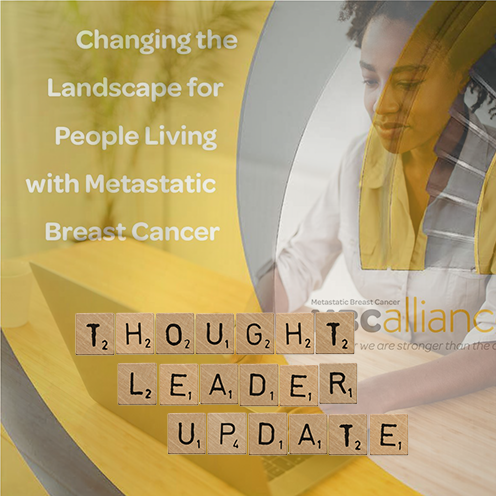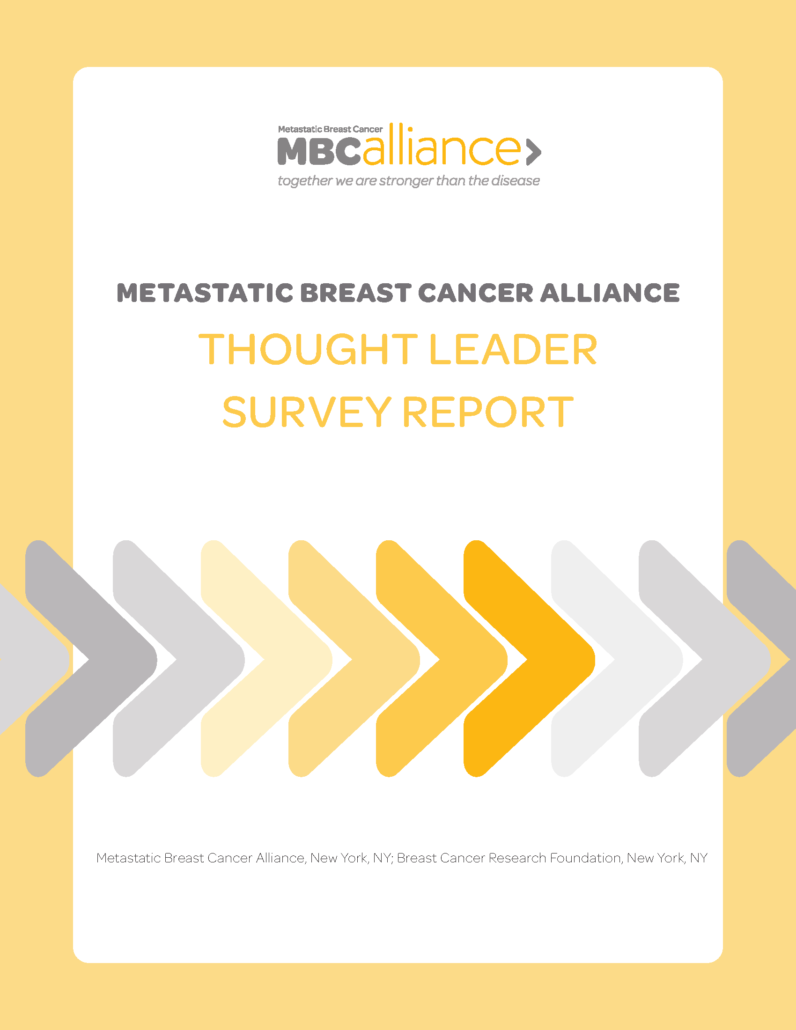Unlike in 2014, interviews in 2020 were also conducted with MBC patient advocates to provide the voice and perspective of people living with MBC. Interviews were conducted on Zoom by four representatives of MBCA member organizations, all with scientific backgrounds. Topics covered in the interviews included recent advances in MBC research, near-term impacts, new treatments, clinical trials, new technologies, roles for advocates in MBC
research, and roles for the MBCA.
In the next step, the MBCA worked with CBWhite, a consultancy that specializes in working with nonprofit organizations to develop strategies informed by marketing research. Survey questions were developed based on learnings from the TL interviews as reported in the TL Synthesis Report. Survey questions and answers were developed by the MBCA TL Subcommittee with input from CBWhite. The objectives of the survey were to
- Understand the impact of recent progress (~5 years) in MBC research,
- Assess the potential of new treatments to impact the lives of those living with MBC in the next ~5 years,
- Assess areas of research and technologies with the most potential to advance our understanding of MBC and impact the lives of patients,
- Understand the importance of various aspects of clinical trial participation, and 5. Inform priorities and roles for the MBCA in the next ~5 years.
Participants rated 90 items in four topics (Research Progress/5-Year Look Back, Research Potential/Next 5 Years, Clinical Trials, MBCA Priorities) that were presented in 14 question sets. Participants were asked to rate each of these 90 items on a scale from 1 to 5, as explained below for each topic. Participants could also select “don’t know” or leave the statement blank. To report a single statistic for each item, we employed a commonly used approach that combines the responses for people who selected 4 or 5 on the five-point scale. Merging these two scale points gives a simple measure of strong enthusiasm for each item rated.
We summarize combined responses of 4 or 5 for items considered in each of the four topics as reported by the three main roles: clinician, researcher, and patient advocate/nonprofit staff. We also consider the subset of people living with MBC among the patient advocates/nonprofit staff.





